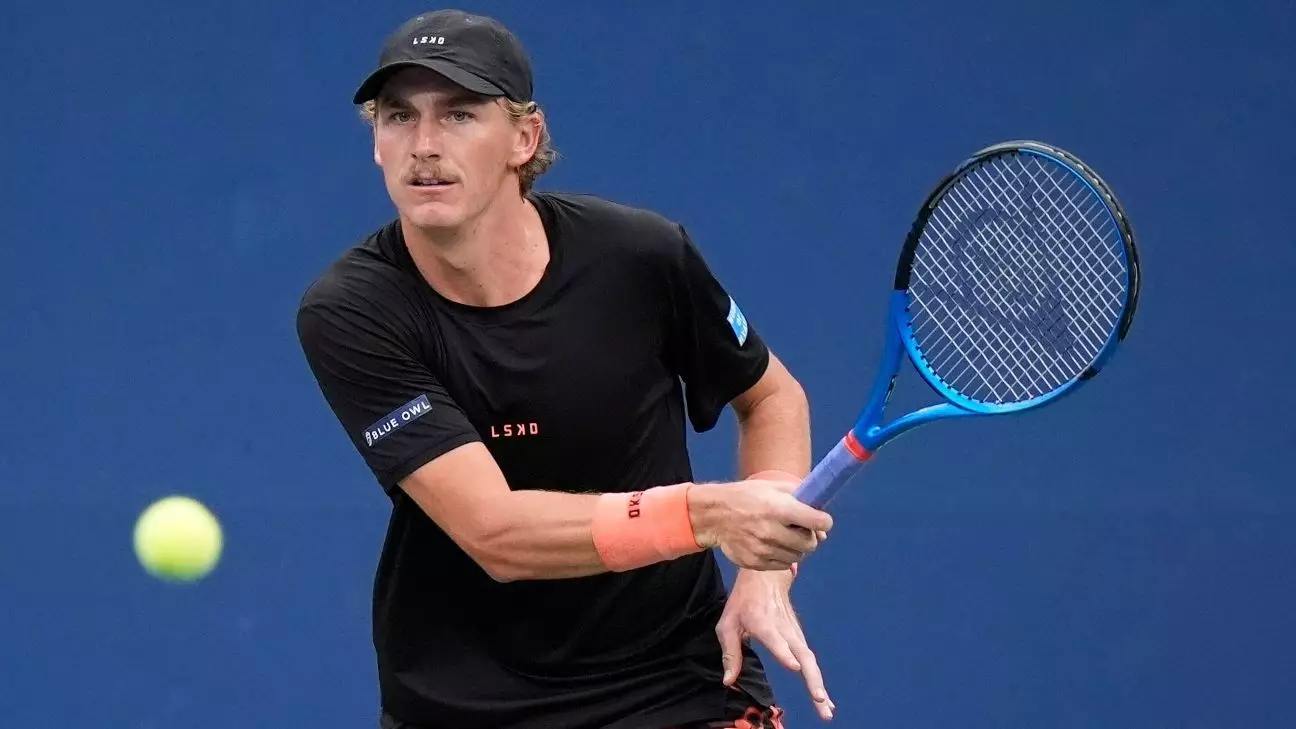In a startling turn of events for the tennis community, two-time Grand Slam doubles champion Max Purcell has voluntarily entered a provisional suspension following a violation of anti-doping regulations. The announcement by the International Tennis Integrity Agency (ITIA) sheds light on the ongoing struggles within professional sports when it comes to maintaining fair play and adhering to regulations. Purcell’s situation not only raises concerns about his future in tennis but also highlights broader issues of doping in the sport.
Max Purcell, at just 26 years old, admitted to contravening Article 2.2 of the Tennis Anti-Doping Program concerning the use of a Prohibited Method. While the specific details surrounding his violation remain undisclosed, the implications are profound: a mandatory removal from participation in any sanctioned events, including international tours and local tournaments. The ITIA has established that the suspension began on December 12 and any time served will be accounted against any future penalties, though the duration of his voluntary suspension remains unclarified.
As a key player in Australian tennis, Purcell’s recent accomplishments included winning the U.S. Open alongside compatriot Jordan Thompson and claiming the Wimbledon title in 2022 with Matthew Ebden. Currently positioned at No. 12 in doubles rankings, Purcell’s achievements have marked him as a significant figure in the sport. However, his current suspension raises questions about how this setback will influence his ranking and opportunities moving forward. Notably, he is absent from the Australian Open entry lists, fueling speculation about whether his sanctions directly impact his eligibility for this prestigious tournament.
A Larger Pattern of Doping Violations
Purcell’s case emerges amidst a troubling trend of doping violations in professional tennis. Just weeks prior, star player Iga Swiatek faced a one-month suspension for testing positive for a banned substance, and earlier, prominent player Jannik Sinner overcame accusations related to trace amounts of anabolic steroids. These incidents highlight a seemingly growing concern about athletes resorting to performance-enhancing substances to gain competitive advantages. Such cases challenge public perception of sport integrity and raise critical questions about the efficacy of existing doping regulations.
As Max Purcell faces this challenging chapter, the tennis community watches closely. His suspension serves as a reminder of the responsibilities athletes have in adhering to the principles of fair play and sportsmanship. The ITIA’s ongoing commitment to ensuring compliance with anti-doping policies reflects a unified stance against the misuse of performance-enhancing substances. Future developments regarding Purcell’s suspension and any resulting penalties will be pivotal, not just for his career, but for the broader landscape of professional tennis, as it grapples with upholding its integrity in the face of such serious allegations. The sport’s resilience may ultimately depend on its ability to navigate these challenges effectively and promote a culture of clean competition.

